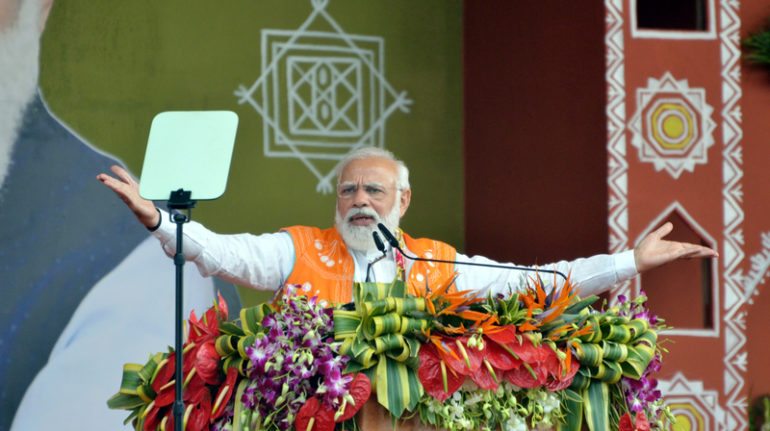
Following Secretary of State Anthony Blinken’s lukewarm reception and lackluster results in Beijing, President Joe Biden may have to reach out to Indian Prime Minister Narendra Modi during his pivotal state visit starting today.
Biden personally invited Modi for the visit, including a state dinner at the White House and a private family dinner. The intimacy reflects Biden’s liking for Modi, who is a formidable politician and has won two elections with overwhelming majorities in India’s very fractious democracy. He is headed towards a convincing third term in May-June 2024, signaled by approval ratings of over 70% in national polls.
Modi has turned India away from decades of skepticism about America and said this week there was unprecedented trust between the two leaders.
He has overcome decades of deep misgivings in India caused by US refusal to sell weapons to it for 40 years since 1965, after a 1962 border war with China and a 1965 war with Pakistan. It also partnered closely with Pakistan, which Delhi saw as a radical Islamic state giving safe haven to anti-India terrorists.
That forced Delhi to turn to the Soviet Union to build defenses against China, which occupied Tibet in 1954 and continually skirmishes with Indian forces along their 2000-mile Himalayan border.
Biden and the Pentagon are leaning towards Delhi not only to dislodge Russia as a weapons’ supplier but to help India build indigenous capacity to manufacture weapons compatible with US systems.
Among other things this week, Modi is expected to complete deals to manufacture jet-fighter engines in India and to purchase high-altitude armed drones from the U.S. in a multibillion-dollar agreement. The goal is to boost surveillance over the Indian Ocean and the border with China.
The US is also moving forward quickly for manufacturing partnerships in semiconductors, cyber warfare, space, heavy infrastructure, information technologies, commercial space and satellites, quantum computing, and civilian and defense applications of artificial intelligence.
Modi is the only Indian politician bold enough to change the trajectory of relations so radically with the US. If Biden’s outreach continues successfully with Washington’s bipartisan consent, India will inexorably become entangled in America’s web for a long time even if it never becomes a formal ally.
Many American commentators interpret Biden’s interest in Modi as limited to using Delhi as a strategic counterweight to Beijing. But for Modi, this is not a question of containing China. It is about producing a new balance of power in Asia, where there is no single dominant power.
That means Delhi will also not countenance an anti-American Russia-China axis that tries to dominate Eurasia and Asia, including India.
Modi’s vision is very far from the non-alignment paradigm favored by his predecessors in Delhi. His foreign policy is one of multiple alignments aimed at advancing India’s interests in partnership with foreign powers as needed.
His India is not a neutral country, whether regarding Ukraine or other conflict situations. His purpose is to preserve India’s economic and security interests by balancing competing influences, including those of countries at war.
For him, India is always on the side of peace because war, whether hot or cold, is always extremely harmful to the interests of development and prosperity for poorer people everywhere. His chief concern is to lift Indians out of poverty forever and stand India up as a creative country dedicated to peace.
Russia’s political influence is already waning in Delhi because of the Ukraine war and is unlikely to recover. China has lost political capital after its soldiers killed Indians in the snow deserts of the western Himalayas in 2020. For Modi, that blow was doubly below the belt because the Indian people were in the throes of the worst months of Covid-19.
Some Americans accuse Modi of damaging Indian democracy and limiting religious freedoms. He rejects such criticisms as misunderstandings about the very complex politics of a country of 1.4 billion people, including tens of million illegal immigrants and thousands of cultural, linguistic, religious and ethnic pressures, exacerbated by poverty and fundamentalist militancy and terrorism.
He insists that India not only tolerates but celebrates its diversity. “I am the first prime minister to be born in free India,” Modi told the Wall Street Journal. “And that’s why my thought process, my conduct, what I say and do, is inspired and influenced by my country’s attributes and traditions. I derive my strength from it.”
“I present my country to the world as my country is, and myself, as I am.”
Photo 234745949 © Dddube | Dreamstime.com
















